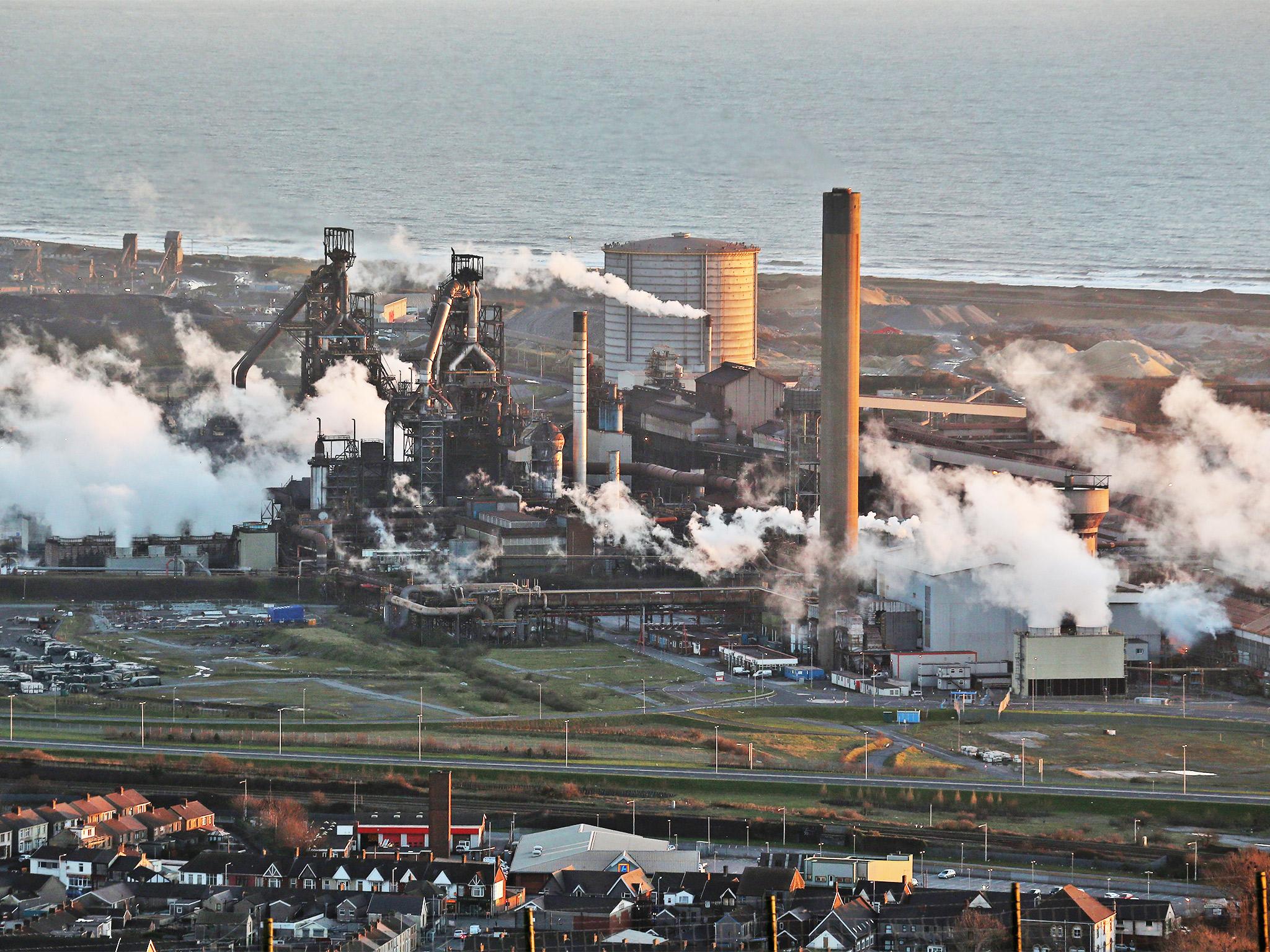Tata Steel and Thyssenkrupp pressed by Government and unions to safeguard Port Talbot jobs after steel deal
The future of Tata’s business in the UK, and particularly at its steelworks in Port Talbot, has been uncertain since last year when the Indian company said it intended to sell its British assets

The Government and UK’s biggest steel union have called on Tata Steel and Thyssenkrupp to commit to safeguarding British jobs, after the two companies announced their intention to merge their European steel operations.
Tata, the Indian conglomerate that operates the Port Talbot steelworks, and Germany’s Thyssenkrupp said on Wednesday that they had struck a preliminary deal to create the continent’s second-largest steel producer (after ArcelorMittal), in a bid to tackle crippling oversupply in the market.
Business Secretary Greg Clark welcomed the news cautiously, describing it as “an important next step [for] Port Talbot as a world-class steel manufacturer, with a focus on quality, technology and innovation”.
But he also pushed the two companies to commit to safeguarding jobs and extending blast furnace operations in the long term at the Welsh site.
The future of Tata’s business in the UK, and particularly at its steelworks in Port Talbot, has been uncertain since the Indian company said last year that it intended to sell its British assets.
Tata employs around 4,000 people in Port Talbot, and said on Wednesday, in the long run, the tie-up could result in around 4,000 job losses across the combined groups. Up to 2,000 of those cuts are expected to be in administration, and up to 2,000 in production.
Roy Rickhuss, the general secretary of Community, the largest trade union for the UK steel industry, also welcomed the proposed merger and said that it “could deliver significant benefits for the UK”. He warned, however, that the “devil will be in the detail”.
“As a priority, we will be pressing Tata to demonstrate their long-term commitment to steelmaking in the UK, by confirming they will invest in the reline of Port Talbot’s blast furnace No 5,” he said.
Any deal is still subject to approval by Thyssenkrupp’s supervisory board and Tata Steel’s board of directors, as well as that of the European Commission. If it does go ahead, the combined venture will be owned equally by both companies and based in or near Amsterdam.
“Under the planned joint venture, we are giving the European steel activities of Thyssenkrupp and Tata a lasting future,” Thyssenkrupp chief executive Heinrich Hiesinger said in a statement.
Mr Hiesinger said that by combining their operations, the two companies are “tackling the structural challenges of the European steel industry”.
Natarajan Chandrasekaran, chairman of Tata Steel, said that his own company and Thyssenkrupp “share similar culture and values”.
“The strategic logic of the proposed joint venture in Europe is based on very strong fundamentals and I am confident that thyssenkrupp Tata Steel will have a great future.”
The two firms said that in the years after the deal is completed, they will focus on “leveraging synergies”. Over the longer term, they expect those annual synergies to amount to between €400m and €600m (£355m and £533m) across areas like sales, administration, logistics, research and development.
The two firms have reportedly been engaged in tie-up talks for over a year, in a bid to cut costs as overcapacity bites. Steel prices have recovered somewhat in recent months, but the industry still faces a massive glut as a result of big Chinese exports.
“We have always targeted the best solution for Thyssenkrupp,” said Mr Hiesinger.
Separately on Wednesday, Germany’s labour minister said that the deal should not happen at any cost – and that if it did go ahead, the headquarters would have to be in Germany.
Andrea Nahles also said employee representatives need to be involved in consultations on upcoming negotiations, and existing commitments to workers must be kept.
Additional reporting by Reuters
Join our commenting forum
Join thought-provoking conversations, follow other Independent readers and see their replies
Comments